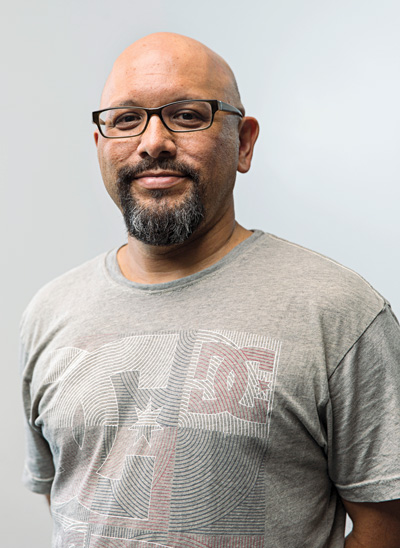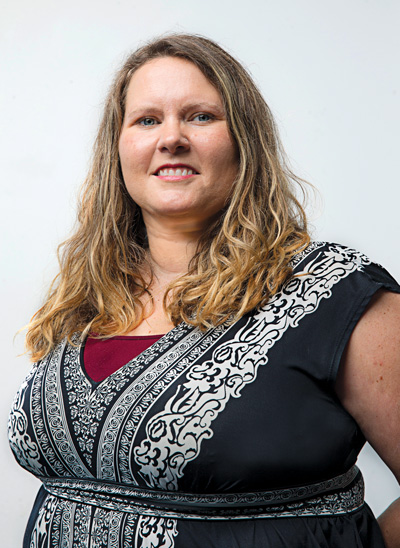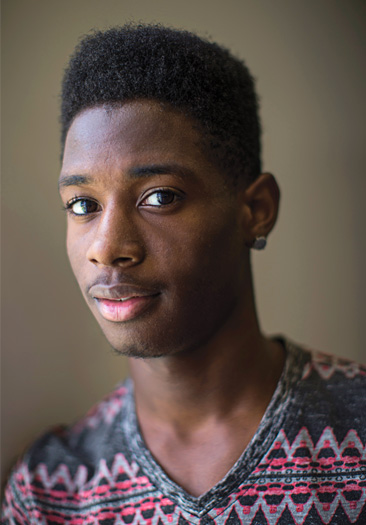The Author, the Poet, and the Librarian

- G. Neri The Author
In 2009, Kim DeFusco, the media specialist at Young Middle Magnet school here in Tampa, invited me to come to her school to give a talk. She told me about one particular student, Raequon, who loved my first book, Chess Rumble (Lee & Low, 2007), a free-verse graphic novella about a troubled boy whose life is turned around by the game of chess. Raequon was dying to meet me. But like many kids in his situation, come the day of my visit, he was not to be found.
“He’s been suspended,” Kim said, as if it were a common occurrence. It was. She was such a believer in this kid, though, that she kept sending me updates about him because my books seemed to be having such an impact on his life.
I’ve been lucky to hear stories like this from librarians and teachers all over the country. Many times, I’ve even seen first-hand my books help turn nonreaders into readers. Literally. I’ve seen boys in the back of the room who’ve never read a book in their lives pick up one of mine (usually illustrated by the bold art of Jesse Watson or Randy DuBurke), and by the end of the day, I hear from the librarian something like, “Remember that disruptive kid in the back? He just finished your book.”
That kind of reaction means a lot to me. It happened to me back when I was one of those kids in fifth grade. I was a visual person who loved to draw, but once pictures were no longer part of the books I was seeing, text became a wall I could not overcome.
That is, until my teacher put The Phantom Tollbooth (Random, 1961) in my hands, and my whole idea of what a book was went out the window. It was a revelation. That teacher had recognized who I was and matched me with a book that would speak to me. That was the start of a long, powerful journey into reading, and eventually, writing.
It’s this triangle of change between author, librarian/teacher, and student that affects so many young lives. I’ve always believed that for every nonreader, there is a book just waiting to be discovered. Often, it’s a teacher or librarian who facilitates that match-up.
For me, a book without a facilitator is just a quaint collection of words gathering dust on a shelf. For many kids I meet, a book only falls into their hands because a librarian or teacher made the connection. For some, these books mean so much, they want to keep them. Sustenance comes in many forms. If you’re hungry, you might steal food. If you’re hungry for something that speaks to you, it might be a book you hold precious. I understand that hunger.
Among the librarians and kids I’ve met, Kim’s relationship to Raequon stood out. Here’s why.

Kimberly DeFusco The Librarian
I first met Raequon in 2009 when he came into our grade six intensive reading class. He was a very vocal nonreader, often a distraction to other students, and a behavioral handful. One day, I brought Raequon back to my office to talk about his behavior. I became agitated because he was looking at the wall and not paying any attention. “Is there something up there more interesting than listening to me?” I asked harshly.
He was looking at a picture of me posing with [Greg Neri] during one of Greg’s visits to our school. He asked, “Isn’t that G. Neri?”
I told him that it was. He was so excited to see I had a picture taken with G. Neri that he began telling me how much he loved Chess Rumble and that he’d read it over and over throughout fifth grade. All of a sudden, it was like I was talking to a completely different Raequon. He lit up, talking about how he related to the character Marcus and how he was jealous of me for having met G. Neri.
Over the next couple years, Raequon continued to be a very vocal nonreader during class, but would also come to the library on his own and ask for books, hiding them in his binder or bag and never bringing them out in class.
When I convinced him to read You Hear Me? Poems and Writings by Teenage Boys, edited by Betsy Franco (Candlewick, 2000), he became obsessed with poetry. He was constantly checking out huge poetry anthologies. One day, he came to me and asked if I had anything by Shakespeare. He’d read a poem in one of the anthologies and liked it. I asked him which poem it was and he said something like, “I don’t know exactly, ’cause it was hard to read, but that man really loved that woman—more than you should love someone. It was good.”
We didn’t have any Shakespeare anthologies. One of our English teachers brought in her Norton Shakespeare Anthology and gave it to him.
During the spring of his sixth grade, we were able to host Greg again, and Raequon was so excited to meet him. I only learned later that he’d saved his “snack” money from home for a couple weeks in order to buy a copy of Chess Rumble for Greg to sign. I took a picture of them together, and Raequon kept that in his school binder for years.
Sometime during his sixth grade year, Raequon began to write poetry. By seventh grade, he had two notebooks full before he ever told me that he was writing. He told me not to say anything, because he didn’t want anyone to know.
He said that when he was in elementary school he did well in school, but that he was bullied for being smart and skinny. He said, “Smart white kids have it easy. It’s not cool to be black and smart, and I can’t stop being black.”
Raequon had made a conscious decision to not be “smart” in middle school so he wouldn’t be bullied. He put on this tough-guy, joker persona and started goofing off in school. He did not want anyone to know he was a poet. All during seventh grade, Raequon was a huge behavior concern, with referrals in the double digits for classroom disruptions. He was going through a lot of distress at home and was acting out more and more at school. A few of us who saw his potential had a big challenge in advocating for him that year.
During eighth grade, Raequon had the opportunity to talk with Greg in person once more. Not long after that, he began to open up to his classmates about his writing. He shared poems with his teachers and allowed them to display them in class.
He became dedicated to getting into Tampa’s Blake High School Creative Writing Program. He put his pain and joy on paper and was not afraid to share it with others. Raequon’s home life was often unstable, and he stopped keeping that to himself. He wrote about the struggles inside himself; trying to make decisions about what was the right path when his role models weren’t positive. He wrote about school, love, heartbreak, and family.
Through his writing, some of his teachers began to understand more about Raequon and had more patience with him. It was a transformation. When he showed me his acceptance paper to the high school creative writing program, he had watery eyes. He gave me a hug and said, “They want me.” His next sentence was, “Will you tell Greg?”
He’s gone from getting Ds and Fs to As and Bs. I know there are a lot of kids out there who struggle like Raequon. What makes me smile is that there are also lots of librarians, teachers, and authors looking out for them.

Raequon P. The Poet
In fifth grade, our librarian picked out a book for us and had it out on the table. I was looking at it like, Hmmm. Chess. I don’t want to read it! It’s about chess! And she was like, “Read it. You’ll like it.” So we started reading Chess Rumble and actually, I did like it! I was like, Oh…this is dope! And we had to do a report on it, and we were talking about it and talking about it. I read it a few more times, and I couldn’t get it out of my head.
So when I came [to Young Middle Magnet School] in sixth grade, I was in the library for the first time and saw a familiar cover, and I was like Wait, wait wait—this can’t be the book. And I found it, and I was like Oooohhhhh! It’s the book! And I went over to Ms. DeFusco and I told her it was my favorite book. She said something like, “Oh, yeah, I was reading it at the beach and was so into it, I forgot to turn over, and it gave me a sunburn—that’s how hot this book is.”
Later on, when Greg came here to talk to us and I finally got to see him in person, I started thinking, “Well, if he could do it, maybe I could do it,” and that’s when I started writing. It took me a long time before I showed my writing to my best friend. He was shocked, like, “Wow, are you serious?” But later he was like, “This is good.”
People are surprised when I say I write poems. They say, “You don’t look like a writer.” Well, what does a writer look like?
© Photography by Edward Linsmier.
RELATED
The job outlook in 2030: Librarians will be in demand
The job outlook in 2030: Librarians will be in demand
ALREADY A SUBSCRIBER? LOG IN
We are currently offering this content for free. Sign up now to activate your personal profile, where you can save articles for future viewing






Add Comment :-
Comment Policy:
Comment should not be empty !!!
Latrice Ferguson
This is a great article about being an active librarian who literally puts books in kids hands. Kudos to you Kimberly DeFusco for never giving up and not saying Shakespeare was too difficult! I love reading articles like this!Posted : Aug 14, 2014 12:37